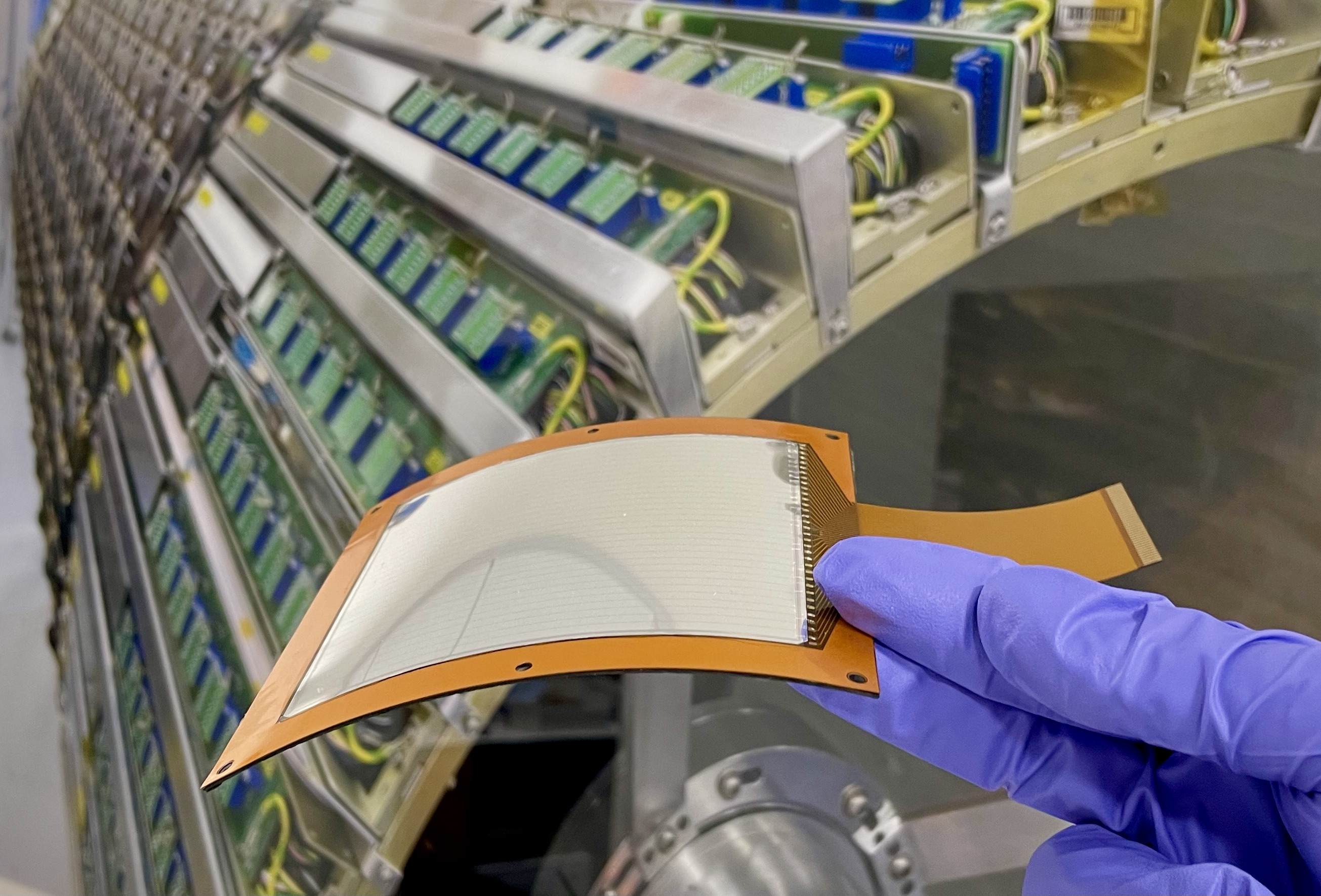Multidisciplinary team of physicists, materials scientists, chemists and colleagues from industry exploring new materials to developing novel technologies for radiation detection.
Organic Semiconductors
Organic semiconductor radiation detectors potentially offer significant cost savings compared to alternative semiconductor technologies. Our materials are fabricated in-house, where we control the whole process chain from the first steps in device fabrication, right the way through to processing data from lab or field tests. We can tailor sensors for different types of radiation including alpha and neutron detectors.
Illustrations of boron neutron capture for thermal neutrons as well as proton recoil and carbon inelastic scatter off of higher energy neutrons
Silicon ATLAS ITk
Over the past decade our group has worked on the design and development of silicon strip detectors for a major upgrade of the ATLAS inner tracker (ITk) at the Large Hadron Collider at CERN. Working with partners from around the world, we are now in the production and construction phase and responsible for testing and validating several thousand silicon sensors.
A close up of part of a sensor imaged using a custom built traveling microscope system.
Ultrathin Silicon
Ultrathin silicon is flexible and offers solutions where a minimal mass detector system is required, which we call the Zero Mass Detector. We have almost a decade of experience in constructing curved silicon modules, following on from work with CMOS Monolithic Active Pixel Sensor (MAPS). We can routinely construct cylindrically deformed large area modules (100mm x 100mm) that have a very low radiation length compared with traditional structures.
A close up detail of a curved sensor module.
Diamond
We’re excited to announce a new UKRI funded partnership with Micron Semiconductor Ltd to research a new thermal neutron detector design based around diamond and boron for the sensing materials. See further details.
